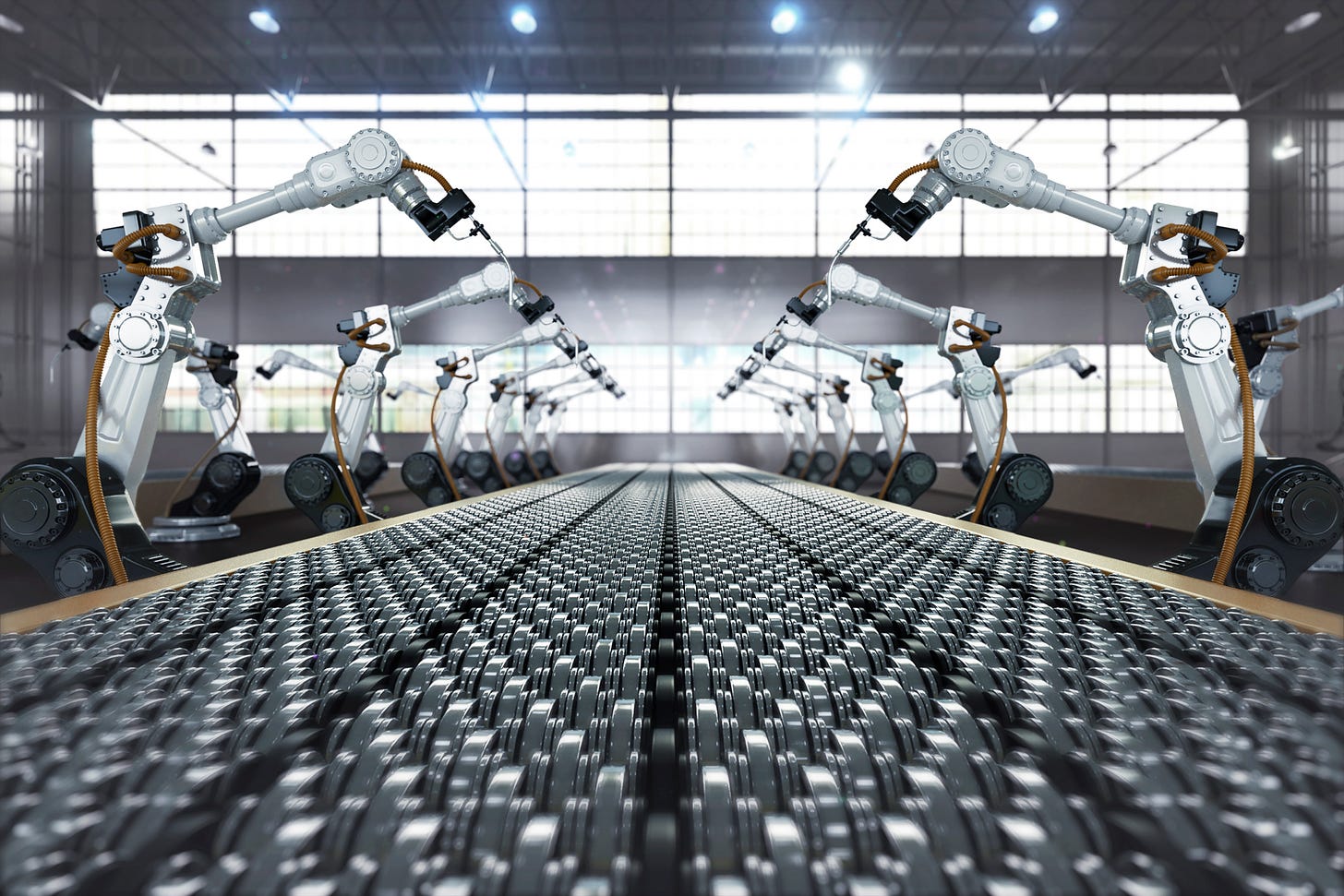This story is part of a challenge to write 52 short stories in one year! Follow along with the challenge and receive prompts to write your own stories, by subscribing here.
Biel sat back in his chair, tapping his lips with joined fingers. He had been bent over his stock portfolio for the past hour, examining where he was feeling short, probing what might be unbalanced.
He switched tabs in his online account, perusing what was available to buy. In his opinion, tech was always a good bet. Not every company would succeed, but as a whole it would rise. Healthcare too—the American population especially was getting older and sicker, and so any pharma company close to a breakthrough was worth investing in. He poured over it for another hour, trusting his mind would absorb patterns and figure the next move out.
Sleeping in the corner, his enormous dog snored away.
Eventually, a clear gap emerged. There could be a space to make money, if he could massage it a little. It wasn’t going to happen on it’s own. But that was okay—all of Biel’s other successes had required some massaging and a lot of elbow grease.
He looked at his Twitter profile again. He’d never admit it out loud, but have 50 million followers sometimes made him feel lightheaded, drunk. Even if only half of them saw his tweets, that was still 25 million people interested in what he had to say. That was more than the leaders of several small nations.
And with 25 million people listening, Biel could do a whole lot.
He tapped the corner of his phone against his lips, silently crafting exactly the right message. It needed to accomplish a goal without being obvious. He needed to seem sympathetic and like a leader.
Finally, he hit upon the right phrasing:
AI without limits is one of the greatest threats to human existence.
He hit send and watched as the likes and retweets rolled in. A thousand in a minute, tens of thousands in the first hour. Within a couple hours, most of the major news outlets had at least briefly covered his tweet—Tech entrepreneur skeptical about artificial intelligence, the headlines read.
It wasn’t untrue. He did believe that unfettered and advanced AI, built by humans without proper understanding of what AI could learn to do, was dangerous. Or, would someday be. Technology wasn’t quite there—yet.
He read through mentions on Twitter, the summaries in articles. People seemed nervous. The oracle has spoken, one outlet swore. We should slow down AI progress.
That was enough for now. He put down his phone and opened up a notebook dedicated to future plans. At the top of a blank page, he wrote, “AI Plans.”
A few months later, Biel mentioned something about AI on Twitter again. This one he’d planned further in advance:
Advanced AI could be used to manipulate social media and change the fate of societies.
Strike them where it hurts, he figured—their “free minds” and “free access” to social media that they so relied on.
Again, what he said wasn’t untrue. Advanced AI could do that.
But why bother with advanced AI when simple AI already was doing that? Basic algorithms had already created echo chambers, and simple internet bots built by bad actors were spreading misinformation faster than he could type ‘misinformation.’
This time, he didn’t spend much time in his notifications. His follower count had ticked up in to the 70 million range in the intervening time, and the mentions and retweets hit correspondingly faster. Since his first AI tweet, his audience had spread beyond tech enthusiasts to include the tech averse, those mysterious people who were terrified of every new technology. Together he knew they’d accomplish what he needed them to.
Instead, Biel went straight to a stock market tracker and watched it out of the corner of his eye the rest of the day. He glanced at it in meetings, kept an eye on it while he enjoyed lunch.
Slowly but surely, certain companies were ticking downward. They had been, since his first tweet. Not terribly, they weren’t in trouble.
But just enough.
A week later, he called together a meeting of his most trusted advisors, most senior allies in his company.
“I want us to get into artificial intelligence,” he said without preamble. “Here are some plans I’ve been drawing up.”
Obviously, this story is inspired by Elon Musk. Why? Well, he spread fear about AI using his following on Twitter, arguably causing some market turbulence and the delays or complete ending of grants to people who were already working in AI, especially in the neural healthcare sector where AI work is helping to give people with mobility troubles back their freedom. Then, of course, he developed an AI branch of Tesla and Neuralink.
He must not be too scared.
Read more about his impact on medical AI in a thread from this neuroscientist:

Biel’s second tweet in this story is adapted from this real tweet from Musk:



